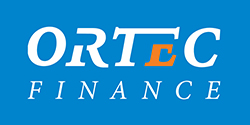Join us at this year’s Life Conference, being held on 22 to 24 November at the ICC in Birmingham, UK.
We have invited some of the most dynamic figures from our domain to deliver presentations and we expect more than 700 of you to join us in-person.
As well as technical learning, the programme provides opportunities to learn soft skills for your personal development.
In addition to 3 plenary speakers from the life insurance sphere and 63 workshops to allow you to choose the learning most pertinent to your career needs and interests, we will also welcome as guest speaker Professor Lord Robert Winston, Professor of Science and Society at Imperial College and Emeritus Professor of Fertility Studies.
Please see below the full in-person programme.
A group booking discount is available for companies who send 5 or more delegates to the full conference (from the same company). All bookings must be made at the same time online to receive the 10% discount off each delegate’s fee. This can be a combination of members and non-members but does not include any day tickets or any discounted places.
You can preview some of the sessions in blogs by the speakers. Read about the new regulations for pension providers and how the UK bulk annuity market has become almost unrecognisable.
Lord Professor Robert Winston is a doctor, scientist, politician, TV presenter and business speaker. Best known for his inspiring television medical documentaries based on fertility, reproduction and technological innovation is this practice, Robert’s pre-eminent expertise in the field makes him the ideal TV presenter and host.
Professor Robert Winston is a Professor of Science and Society along with an Emeritus Professor of Fertility Studies at Imperial College. Within his own research, Robert currently looks to improve the production of stem cells to reduce genetic abnormalities in embryos.
In 1995, Robert became Baron Winston, life peer of the London Borough of Hammersmith. Robert speaks frequently on medicine, education, science and the arts whilst also holding posts such as Chairman of the Science and Technology Select Committee. During after dinner speeches, Robert interacts with audiences and enlightens listeners about the complexities of human biology and science. Engaging and compelling, Robert can tailor his content as a technology speaker to make his talks specific to your brief.
Winston’s highly regarded documentary work includes Superhuman, The Secret Life Of Twins and Child of Our Time has received some of the highest accolades for television work, including a BAFTA for The Human Body.
He also sits on the Labour party benches in the House of Lords and speaks on a regular basis there on education, medicine and science. He was previously Chairman of the House of Lords Select Committee for Science and Technology and is now Vice-Chairman and a board member of the Parliamentary Office of Science and Technology. An ideal after dinner and keynote technology speaker, Robert’s knowledge of technology and its influence within his profession makes Robert an inspirational speaker.
One of the City’s best known and most respected economists, Roger Bootle is the founder of the influential consultancy Capital Economics. Renowned for his prediction and diagnosis of some of the most significant financial events of recent times, he also became recognised as one of the UK’s leading pro-Brexit economists bringing reasoned argument and experience to an often heated, emotional debate.
After lecturing at Oxford, Roger became a dealer at Citibank, one of the few economists to gain direct trading experience. He then switched to the role of Group Chief Economist at HSBC and Lloyds Merchant Bank, before establishing his own consultancy and becoming a senior advisor to the House of Commons Treasury Committee.
Under the previous Conservative government, Roger was appointed to the Chancellor’s panel of independent economic forecasters, known as ‘The Seven Wise Men’. He’s served as a Visiting Professor at Manchester Business School and is a regular media contributor and columnist, and has been named Economics Commentator of the Year. He is the author of Theory of Money and The Death of Inflation. He predicted the banking crisis in Money For Nothing – and later studied the causes, effects, and future threats in The Trouble with Markets. More recently he’s examined the next great challenge for businesses, policy makers, and society in The AI Economy: Work, Wealth and Welfare in the Robot Age.
After leading the team that won the prestigious Wolfson Prize (second only to the Nobel in the economics field) for their study on how a country would leave the Euro, he published The Trouble With Europe. The latest edition considers how to make a success of Brexit, as well as how to reform the EU.
Noted for his wry delivery of often uncomfortable truths, Roger has an impressive record of forecasting major market, economic, and monetary events. He foresaw the credit crunch, the collapse of the dotcom boom, the UK’s removal from the ERM, and the period of sustained low inflation in Europe and the US.
| Activity | Time | Details |
|---|---|---|
| Registration open, tea, coffee and a cookie | 14:45 - 16:30 | |
| Welcome to the Life Conference – Dawn Whittaker | 16:30 - 16:40 | |
| IFoA update – Kalpana Shah and Ben Kemp | 16:40 - 17:40 | |
| Plenary 1 – Baron Robert Winston | 17:40 - 18:40 | A matter of life and death – why do we age? Read more |
Lord Professor Robert Winston is a doctor, scientist, politician, TV presenter and business speaker. Best known for his inspiring television medical documentaries based on fertility, reproduction and technological innovation is this practice, Robert’s pre-eminent expertise in the field makes him the ideal TV presenter and host. Professor Robert Winston is a Professor of Science and Society along with an Emeritus Professor of Fertility Studies at Imperial College. Within his own research, Robert currently looks to improve the production of stem cells to reduce genetic abnormalities in embryos. In 1995, Robert became Baron Winston, life peer of the London Borough of Hammersmith. Robert speaks frequently on medicine, education, science and the arts whilst also holding posts such as Chairman of the Science and Technology Select Committee. During after dinner speeches, Robert interacts with audiences and enlightens listeners about the complexities of human biology and science. Engaging and compelling, Robert can tailor his content as a technology speaker to make his talks specific to your brief. Winston’s highly regarded documentary work includes Superhuman, The Secret Life Of Twins and Child of Our Time has received some of the highest accolades for television work, including a BAFTA for The Human Body. He also sits on the Labour party benches in the House of Lords and speaks on a regular basis there on education, medicine and science. He was previously Chairman of the House of Lords Select Committee for Science and Technology and is now Vice-Chairman and a board member of the Parliamentary Office of Science and Technology. An ideal after dinner and keynote technology speaker, Robert’s knowledge of technology and its influence within his profession makes Robert an inspirational speaker. | ||
| Dinner, drinks and exhibition | 18:40 - 22:00 | |
| Activity | Time | Details |
|---|---|---|
| Registration | 08:30 - 09:00 | |
| Plenary 2 – Roger Bootle | 09:00 - 10:00 | |
| Workshop A1 – Kindly sponsored by PIC | 10:10 - 11:00 | Climate risk in the capital framework Read more |
With more and more regulatory and industry focus on measuring and managing climate risk, actuaries are increasingly considering if climate risks should be explicitly captured in capital requirements. And if so, how? In this talk the speakers will:
Speakers: Charlie Beard and Eoin O’Byrne, PIC
| ||
| Workshop A2 | 10:10 - 11:00 | Unlocking the bank vault: how insurers can ride the interest rate wave Read more |
Unlike banking, insurance usually stays out of the headlines when it comes to interest rate changes by the Bank of England or the Fed. This comes as no surprise when insurers hold long-term bonds to back their long-lived liabilities while bankers are exposed to the immediate demands of depositors. However, a decade of extremely low interest rates and the pursuit of higher yield through more illiquid assets have fashioned the financial world in many aspects. In the face of recent successive hikes in interest rates, these can take a long time to unwind. It is a problem tackled already by banks and soon by insurers. 4most engages actively with both banking clients through its credit risk consulting team and economic modelling team and insurance clients through its insurance consulting team. This talk aims to cover the rising interest rate impacts on and reactions to:
4Most will do this by leveraging its joint research on modelling macro-economic variables and the impact on consumers and financial institutions. Speakers: Keith Church and Dharmesh Roopun, 4Most | ||
| Workshop A3 | 10:10 - 11:00 | IFoA Climate Stress and Scenario Testing Working Party Read more |
The IFoA Climate Stress and Scenario Working Party has been developing a framework to help companies develop organisation specific and decision useful climate narratives and stress and scenario tests. The working party will be publishing this paper in Q3 2023. The aim of this presentation is to present its framework for climate stress and scenario testing. This session, and our paper, would be of interest to:
As such it would be of interest to actuaries working in the climate space and responsible for developing climate and other scenarios. Speaker: Adel Drew, Milliman and Deepanjali Talwar | ||
| Workshop A4 | 10:10 - 11:00 | Risk revolution: empowering the chief risk officer of the future Read more |
Traditionally, the risk function has been perceived as conservative and cautious, often seen as a potential barrier to innovation and growth. But this perception is changing as forward-thinking chief risk officers (CROs) recognise the value of aligning risk management with the broader strategic objectives of their organisations. This session will explore the transformation of the risk function. It will do this by delving into the ways in which CROs can proactively support and contribute to the overall company strategy. It will highlight successful case studies and best practices from companies that have effectively integrated the risk function into their strategic decision-making processes. They have done this by strengthening the collaboration between risk management and other key functions. The session will address the importance of effective communication and transparency in risk reporting. It will raise awareness of the breadth of expertise and knowledge required by the CRO to meet expectations from stakeholders. The key outcomes are to:
Speakers: Iain Maclugash and Julian Masselot, Barnett Waddingham | ||
| Workshop A5 | Protection | 10:10 - 11:00 | Extended insurability for people living with HIV Read more |
HIV has gone from a virtually uninsurable disease in its first decades to a near standard rates risk for many people living with the disease. In this session, learn how advances in medicine and improved data monitoring has resulted in HIV being considered as just another chronic disease. Dr Steven Wiseman will share how Munich Re’s extensive research resulted in people living with HIV now having access to protection types other than life. The audience will learn how the industry can now be confident to extend insurability to many people previously unable to buy many insurance products. Speaker: Dr Steven Wiseman, Munich Re | ||
| Workshop A6 | 10:10 - 11:00 | Private market investments: a benefit for society and consumers Read more |
Private equity and venture capital provide a vital role in the growth of new companies and novel technologies. Those who engage with these strategies can find future leaders across a diverse group of sectors, equipped with disruptive technologies and a desire to reshape traditional business. The session will focus on this dynamic and increasingly prominent financial sector. It will explore the role of private equity and venture capital and its part in nurturing growth in UK start-ups through to listing. The Mansion House Reforms, supported by a compact of major insurance companies to commit 5% of default pension savings to ‘unlisted equity’, pave the way for a future of pension investment benefitting from private equity and real asset returns. This was previously only available to high net worth individuals and inaccessible to many workplace pension investors. Aligning the investment potential of pension savings with the traditional defined contribution model and private equity fund structures is the core challenge in achieving the goals of the Mansion House and Edinburgh reforms. How do UK insurers manage liquidity risk and redemptions with increased private asset allocation? And can insurers encourage good outcomes for policyholders and the broader economy through investment in UK private equity, infrastructure, and other productive assets? Speakers: Sam Tufts and Tom Brown, Phoenix Group | ||
| Workshop A7 | 10:10 - 11:00 | Consumer Duty: what does it mean for with profits? Read more |
This talk will focus on how Consumer Duty impacts with-profits, including the application to the legacy with-profits. Sam Jones is a non-actuary working in the insurance space, with both legal and regulatory background, and has spent time with the FCA on this topic. She will complement the actuarial view in this session. The content will cover:
Speakers: Kirs Overlunde and Sam Jones, PwC; Brian Murray, The Phoenix Group | ||
| Workshop A8 | Protection | 10:10 - 11:00 | Post-pandemic mortality trends Read more |
Mortality projection models, such as that produced by the Continuous Mortality Investigation (CMI), are highly sensitive to recent mortality data. In addition, the past data does not fully capture recent real-world changes that we expect to impact on future mortality, but that are only just emerging in longevity data. These factors do not preclude the use of extrapolative models to express mortality improvements. But they fundamentally change the process by which such models need to be calibrated. Many organisations are now challenged with making sense of recent data and information, such that it can be translated into a ‘post-pandemic’ trend assumption. This session will discuss these challenges and share Hymans Robertson’s approach to navigating them. It will set out the company’s methodology for deriving a ‘post-pandemic view’ of future mortality. This will include a discussion on the recent real-world changes that will impact views of mortality, including strains on the NHS and the ongoing impact of COVID-19. This presentation will be suitable for longevity assumption setting teams and anyone interested in the underlying drivers that will shape future improvements. Only a basic understanding of the concepts of longevity improvements assumptions will be required. Speaker: Megan Hart, Andrew Devine, and Kara Scott, Hymans Robertson | ||
| Workshop A9 | 10:10 - 11:00 | The currency of trust: the industry’s most precious commodity? Read more |
In a world dominated by fake news, phone hacking and information overload, who can you trust? Your insurer? Trust is the cornerstone of the life insurance industry. It is fundamental for consumers to trust insurers to ‘do the right thing’. So what can we do to build trusted relationships for the benefit of all? Looking at trust in the workplace, this session will explore:
It will also explore the current trust landscape in the insurance industry (insurers and advisers). We’ll discuss:
Speakers: Ewen Tweedie, James Cousins, and Jessica Lewis, PwC, and Toby Hester, Wesleyan | ||
| Morning refreshment and exhibition | 11:00 - 11:45 | |
| Workshop B1 | 11:45 - 12:35 | Generative AI: the biggest transformation since desktop computing Read more |
This session will illustrate the transformative potential of generative AI. It will do this through a range of concrete AI use cases, showcasing a wide range of powerful applications seen in this field. Most discussion of large language models (LLMs) focuses on their ability to write essays or computer code, which is impressive but less relevant to actuaries. Instead, this session will examine how LLMs can be augmented with insurance domain knowledge and be integrated into processes to accelerate actuarial modelling and financial reporting. This presentation will build on earlier versions presented at CILA and the Society of Actuaries, Ireland, with a wider range of practical insurance-related use cases. It will outline the workings of the LLMs that underlie tools like ChatGPT and Github Copilot. Given the rapid advances in this field, it will also provide an update on other leading AI models advances (that is, ‘non-ChatGPT’ models). It will discuss the pros and cons and potential future capabilities of these models. The agenda will cover:
Speaker: Matthew Edwards, Daniel Ramsay, and Arlen Galicia Carreon, WTW | ||
| Workshop B2 | 11:45 - 12:35 | LP-WHY: the complications of inflation Read more |
With central banks across the globe battling soaring inflation, it’s never been more important for insurers to manage their significant exposures to LPI-linked liabilities. This is especially in the context of anticipated record years for the bulk annuity market. In this session, experts from PIC and NatWest Markets will:
Speaker: James Gillespie, NatWest Markets and Mark Hurdley, PIC | ||
| Workshop B3 | 11:45 - 12:35 | Which exit do I take? Clarifying insurance resolution Read more |
Martin Bonus and Tim Scott designed the Insurance Resolution Regime (IRR) at the Bank of England, working alongside HM Treasury, and were involved in the Prudential Regulation Authority’s (PRA) development of exit planning. They’re here to offer some guidance and clarity in regards to overlapping and sometimes confusing terminology. Many insurers already have resolution plans, but these documents are not necessarily well-positioned for exit planning in the current regime. There can be misunderstandings about the PRA’s powers, the relevance of the Solvency II ‘ladder of intervention’, and insolvency triggers. The (potential) introduction of the IRR would add additional powers that insurers would need to prepare for. Marty and Tim will provide much-needed clarity on what it means to write a resolution plan, in the current regime and the (potential) future Insurance Resolution Regime. Speaker: Martin Bonus, Bonus Actuarial Consulting Ltd; Tim Scott | ||
| Workshop B4 | 11:45 - 12:35 | Entering the BPA market: opportunities and challenges Read more |
Multiple firms are considering entry to the UK bulk annuity market. This is because of the potential for strong volumes and returns on capital over the next 10 years or more. This presentation will explore the attractiveness of the market and the opportunities and challenges that firms face when entering. Russell Lee, Head of Insurance Solutions at M&G, will discuss M&G’s experience of entering the market in 2023. Chris Anderson, Head of Bulk Annuity Consulting at EY, will set out his views on the market based on working with multiple new entrants. This presentation is aimed at those with some prior knowledge of the BPA market. Speakers: Chris Anderson, EY and Russell Lee, M&G | ||
| Workshop B5 | 11:45 - 12:35 | ESG: thinking beyond climate risk Read more |
Thanks to SS3/19, significant work has been done to embed financial risks from climate change within risk management frameworks, and in generally considering climate factors in the work actuaries do. Less focus has been given to the other elements in ESG. However, insurers should consider the implications of all facets of ESG on their businesses. We are starting to see more of a focus on this with discussions on a ‘just transition’ and more recently nature-related disclosures. This presentation will consider the wider implications of a world with a changing climate. It will focus on other environment and nature-related issues, social considerations, and the importance of specific E and S governance considerations. It will also explore how these elements are interconnected and not standalone and therefore should be considered together. This presentation is suitable for a wide audience and does not assume any existing knowledge of the topic. However, it may be of particular interest to actuaries working within risk management. Speakers: Amy Nicholson, Charlie Howell, and Nick Spencer, Milliman | ||
| Workshop B6 | Protection | 11:45 - 12:35 | Cascading impacts of pandemics: modelling considerations Read more |
The COVID-19 pandemic highlighted the impact infectious diseases have in wider society as well as the acute direct impacts on mortality and morbidity. This session will advocate the utility of life catastrophe modelling techniques for understanding pandemics and how pandemics produce cascading impacts into the economy and society. The session will:
By the end of the session attendees should have a broader perspective on how seemingly disparate risks influence each other and the benefits of considering risk holistically. Speaker: Ragav Sawhney, Moody’s | ||
| Workshop B7 | Protection | 11:45 - 12:35 | An analysis of diabetes mortality and morbidity risk Read more |
The research project, an analysis of diabetes mortality and morbidity risk, was commissioned by the IFoA’s Actuarial Research Centre (ARC), Pacific Life Re, Partner Re, Swiss Re, Legal & General, and Zurich Insurance Group. The research is being carried out by world-leading experts in risk analysis, risk modelling, and risk evaluation at the University of Leicester, Dr Bogdan Grechuk, Dr Evgeny Mirkes, and Professor Alexander Gorban. They are supported by the Real World Evidence Centre and the Leicester Diabetes Centre, a unique, collaborative partnership between the NHS and the University of Leicester. The last decade has seen significant advances in treatments for type 2 diabetes. But the long-term impact of these advances is not yet fully appreciated. The overarching aim of this research project is to develop a deeper understanding of the:
Specifically, the research sets out to:
This session will be of interest to (re)insurers who write protection and longevity business. Speakers: Scott Reid, Zurich and Dr Bogdan Grechuk, University of Leicester | ||
| Workshop B8 | 11:45 - 12:35 | Securitisation deep dive: asset classes and structuring considerations Read more |
In this talk, we discuss how the maturity of this market has led to insurers and actuaries playing a greater role in the creation of attractive structured assets for a variety of purposes. We will cover several different angles including:
We will also consider the key risks when creating and managing these assets and how investors can successfully manage these. Speakers: Richard Wilson and Andrew Rice, EY | ||
| Workshop B9 | 11:45 - 12:35 | No time for procrastination: we need to talk about MA attestation! Read more |
HM Treasury published its ‘Review of Solvency II: consultation response’ in November 2022. It sets out the government’s final reform package and the plans for implementing changes to the UK’s prudential regime for insurers. The overarching methodology of the fundamental spread (FS) calibration will remain largely unchanged. But there is a new requirement for firms to attest that the FS covers all retained risks. In this presentation we will consider:
This talk is aimed at anyone who is interested in the potential impacts of Solvency UK on life insurers and has a working understanding of the FS and MA. Speakers: James Kay and Andrew James, PwC | ||
| Lunch and exhibition | 12:35 - 14:00 | |
| Plenary 3 | 14:00 - 15:00 | Regulatory reform: protecting policyholders into poverty? Read more |
Brexit provided the UK with a once-in-a-generation opportunity to reform its regulations to better suit the UK economy. As a result, the last 2 years have seen copious regulatory change. The Financial Services and Markets Bill has led the way for the Edinburgh and Mansion House Reforms as well as the much anticipated reforms to Solvency II. Against the backdrop of an aging population, a volatile macroeconomic and geopolitical environment, and widening pension and insurance gaps, this session will take a step back from the detail to examine the whole regulatory landscape for pensions and insurers through a consumer lens. Starting from regulatory objectives, it will explore system-wide structural issues to the consumer’s wallet. In particular, the session will shine a light on the inter-generational and socio-economic differences in outcomes for consumers. It will examine the continuing trend away from guaranteed products and a lack of innovation in insurance products. Looking to the future of the UK life and pensions market, the session will also question whether the reforms go far enough to remedy the challenges that consumers are facing, and not just the challenges of policymakers, regulators, and industry. In the midst of detailed debates on immeasurable and abstract insurance jargon, have we lost sight of the consumer? Speakers: Sarah O’Sullivan and Connar McBain, Phoenix Group | ||
| Workshop C1 | 15:10 - 16:00 | UK bulk annuity market: bigger, stronger, faster, harder Read more |
The UK bulk annuity market has grown vastly over the last few years, especially in the face of increases in interest rates over 2022. This session will give an overview of the market in the current economic environment, alongside the challenges faced. Bigger: The UK bulk annuity market has grown beyond recognition since the 2016 advent of Solvency II. The speakers will cover a brief history of the market. Stronger: Insurers’ balance sheets have become stronger, bolstered by experience over 2022, increasing firms’ abilities to deploy excess capital. So, who’s doing what in the market? Faster: 2022 helped improve funding positions for several pension schemes, accelerating de-risking plans and leading to unprecedented demand for bulk annuities. What’s the reality, and who might be a ‘mega’ candidate? Harder: Increasing the size of deals presents new challenges for premium deployment, hedging (at the limits of market liquidity), and liquidity risk management. The speakers will explore how these ‘diseconomies of scale’ present. Capital availability, difficulties for new entrants to the market, and ‘problem’ assets in pension schemes all present headwinds, in addition to constraints on ‘human’ capital. The presentation will look at how firms and schemes have coped in the face of these challenges. Speakers: Andrew Kenyon and Suanne Chong, NatWest Markets | ||
| Workshop C2 | Protection | 15:10 - 16:00 | Alternative data in life and health risk assessment Read more |
As digital data becomes more available and accessible, life insurers are exploring how to use this alternative data to assess applicants. Risk assessment, which continuously evolves over time, now has the potential to move to the next level with the arrival of this alternative data ‒ which is usually easier to access and can enhance the underwriting journey. This presentation will help attendees to learn how to tailor a framework of principles for any given risk assessment scenario using alternative data. It will explore different types of data that are being used globally such as wearable data, digital biomarkers, genetic data, and more. To give attendees a feel of the real world, the speakers will look at alternative data through 5 real life case studies:
Across these scenarios, the session will give attendees guidance and an analysis on how to better triage opportunities and thereby being able to offer customers a better and more cost-effective insurance experience. Speakers: Febby Mulewa and Doug Rix, Swiss Re | ||
| Workshop C3 | 15:10 - 16:00 | Quantifying the impact of climate change on UK longevity Read more |
To holistically model the impact of climate change on future longevity, a careful consideration of both physical and socioeconomic factors is required. It is also instructive to use an empirical-based approach where possible as this helps with transparency and objectivity. This session will discuss a methodology for quantifying both physical and socioeconomic impacts of different future climate scenarios in the UK. It will cover:
By the end of the session, attendees should have an understanding of how UK-based data can feed into quantitative modelling of climate change on future UK mortality rates and its context in understanding longevity risk. Speakers: Ragav Sawhney, Moody’s RMS | ||
| Workshop C4 | 15:10 - 16:00 | Lapse in judgement: use ML and XAI to model lapses and draw insights Read more |
Lapse rate is one of the main key risk drivers for many life and health insurance contracts and a key assumption for many actuarial exercises such as pricing, reserving, ALM, and risk management. Despite being influenced by many factors such as duration, contract types and entry age, lapse rates modelling has been rather crude in practice. The IFoA Actuarial Data Science Working Party would like to:
The techniques the working party considered include: regression model, Bayesian mix, XGB, and Neural Network. It further demonstrates how explainable AI can be applied to explain model predictions and gain further insights into the driving forces of lapse rates. By comparing these new techniques against the current standard models, the working party assesses the benefits and challenges of adopting these new techniques. The target audience would be pricing, reserving, and risk actuaries concerned with lapse assumptions and the factors driving lapses, and anyone interested in machine learning, XAI, and data science. Speakers: Patricia Wang, Lloyd’s of London and Jennifer Loftus, Acorn Life | ||
| Workshop C5 | Protection | 15:10 - 16:00 | Understanding the complexity of mental health Read more |
As more people with mental health problems share their symptoms and seek treatment, and as awareness of potential risk factors increases, doctors are now diagnosing mental illness more frequently. In response to this trend, Munich Re undertook a review of its underwriting guidelines with the objective of increasing the boundaries of insurability and taking a more differentiated view of each applicant. In this presentation Dr Laura Laprell will explain how the findings of Munich Re’s research will help insurers address both the complexity and increasing incidence of mental health disorders in all stages of the protection journey. From this presentation the audience will understand the complexities of mental health disorders, including the typical and untypical combinations and correlations of mental health allowing more accurate pricing and the ability to offer cover to more people. As a leading reinsurer, Munich Re challenged itself on how can it address the increasing frequency and complexity, while being able to maintain fair and risk-adequate underwriting guidelines. To answer these questions, experts at Munich Re have developed a holistic solution: the Mental Health Calculator. Speaker: Dr Laura Laprell, Munich Re | ||
| Workshop C6 | 15:10 - 16:00 | Making innovation in DC and retirement work for consumers Read more |
The days of DB are waning: work for 40 years, take a nice lump sum, and receive an inflation linked income for life. Simple. Consumers planning their retirement are increasingly reliant on their DC pensions to provide an income in retirement. Not so simple! The DC product landscape is developing with the help of legislation, regulation, and new products, both during accumulation and in retirement. With this comes increased choice and complexity and without the right support mechanisms in place – for example knowledge, understanding, engagement, advice – it is not clear that a majority of consumers will make good decisions. But is there an alternative? What consumers really want is an income for life. This session will:
Speaker: Kris Black and Paul Mason, WTW | ||
| Workshop C7 | 15:10 - 16:00 | Unleashing capital: an investment model for national growth Read more |
Pension wealth in the UK is £2.6 trillion, the fourth largest in the world. But UK institutional investors do not invest proportionately in the kinds of assets that spur economic growth and create long-term prosperity. UK pension funds and insurers are less likely to invest in infrastructure, private equity, venture capital, and private credit than their international counterparts. This contributes in part to the UK’s weaker economic performance and to UK firms finding it hard to scale-up because of a lack of long-term funding options. UK cities can be more productive, UK infrastructure can be competitive, and UK venture capital can grow more quickly. The Mansion House Reforms include several changes proposed in the ‘Unleashing Capital’ report by British think-tank Policy Exchange, which aimed at increasing investment towards higher growth, illiquid assets, and venture capital. The talk will consider, in 3 stages:
Speaker: Kyle Audley, Phoenix Group | ||
| Workshop C8 | 15:10 - 16:00 | The Bermudan life market: the key to unlocking UK potential? Read more |
The life reinsurance market in Bermuda has grown significantly in recent years. According to an industry report published last year, Bermuda saw an 8% increase in the total market share of global L&A ceded reserves in 2021. This growth continues to be observed in 2022 with numerous large annuity transactions being announced between US entities and Bermuda reinsurers. With its regulatory framework attaining Solvency II equivalency and NAIC reciprocity, Bermuda is expected to continue seeing further growth in the near future within the capital intensive life insurance space. In this session, experts from Deloitte Bermuda will provide a first-hand perspective of the life insurance market in Bermuda, covering topics such as:
We will the look at the impact of all of this on both the local and international market, particularly on its impact on UK life insurers. Speaker: Clayton Chuah and Ankit Baweja, Deloitte | ||
| Workshop C9 | Protection | 15:10 - 16:00 | Why we need to talk about hormones Read more |
The female hormone cycle is not a topic openly discussed or even considered. But by ignoring this natural process you could be hampering your company’s DEI agenda. In this session, Adel Drew will present options for employees and employers to work more in sync with our natural cycles, hormonal or circadian, to allow for better work life balance and ultimately increased productivity and better health outcomes. Additionally, there are implications for some female customers of life insurance products of not acknowledging hormones within the work we do and the absence of considering hormones within our healthcare systems. For example, a medical study found that cholesterol levels can fluctuate as much as 20% throughout the menstrual cycle. But Drew says she has never been asked by her doctors about her cycle when interpreting blood test results. This talk is based on information from Drew’s personal health journey. It is about normalising the discussion around hormones and changing the narrative to focus on positive aspects and empowerment. Drew believes this topic is important for all cycling females, anyone who works with women, and anyone who has women they care about in their lives. Speaker: Adel Drew, Milliman | ||
| Afternoon refreshment | 16:00 - 16:45 | |
| Workshop D1 | 16:45 - 17:35 | Who ate all the pie (charts)? Making a meal of data in the digital age Read more |
Ever considered your data a bit flaky? Have you ever kneaded help building a data story? Do you ever hope to be part of the upper crust of data visualisation? The information age has brought unparalleled analytical opportunity for those with the right tools. No more excuses for half-baked analyses. Actuaries now have access to unprecedented modelling power and efficiency through data analysis tools and visualisation software that can give you a (golden) edge. Using examples and case studies, this session will cook up a discussion on:
Key topics include:
This presentation is designed for anyone interested in developing their data insights and communication skills or in understanding what software is available to enhance their analyses. Speakers: Murray Lidgitt, Shahrukh Nawaz, and Kate Fry, Hymans Robertson | ||
| Workshop D2 | 16:45 - 17:35 | Consumer Duty: challenges and opportunities for in-force business Read more |
Building on the provocative session at last year’s Life Conference, this presentation will focus on how the industry has started to seize the opportunities that Consumer Duty presents in delivering better outcomes for customers and their providers, and the regulatory perspective on the industry’s actions. Now that the new business deadline has passed, the focus has switched to legacy where the challenges are perceived to be greater. The session will focus on activity being taken around fund and product rationalisation or policy enhancements to align with the work carried out for new business. It will:
Consumer Duty is only just beginning. Speakers: Trevor Fannin, Rosie Anssari-Benam, WTW and Andrew Ruddle, FCA | ||
| Workshop D3 | 16:45 - 17:35 | With-profit fund closure and conversion Read more |
This presentation will discuss the closure of a with-profits fund that had reached its sunset clause. The issues to be covered include:
Speakers: Scott Robinson, Zenith Actuarial and Ravi Dubey, One Family | ||
| Workshop D4 | 16:45 - 17:35 | Alexa, build my actuarial model! Read more |
The insurance industry is being reshaped by technological advances, societal shifts, and innovative business models. The advent of AI promises transformative impact on the industry. Actuaries face several challenges in their day-to-day work, such as managing complex datasets, performing intricate calculations, and ensuring the accuracy and reliability of their models. AI offers a unique potential to address these challenges by providing tools that can assist actuaries in various tasks. Using ChatGPT as an example, the speakers explain how AI can help remove some of the barriers to entry to using a programming language not part of the traditional skillset of an actuary. They carry a live demonstration of how a simple life model can be built into R language by harnessing the capabilities ChatGPT. They explore how ChatGPT can help write codes that are concise, well documented, and easy to audit and communicate. The speakers aim to keep the session interactive and encourage audience participation. The session also address some of the risks and challenges of using AI for assisting actuaries in their coding and modelling work. Finally, it will discuss the role of regulatory bodies and their efforts to establish guidelines for responsible use of AI for insurance. Speakers: Aniketh Pittea and Shivang Arya, Grant Thornton | ||
| Workshop D5 | 16:45 - 17:35 | Climate risk: scenarios, narratives, and actuarial story-telling Read more |
This session will discuss the importance of scenario analysis in considering the potential impacts of climate change for your business. The structure of the presentation is:
While the session will focus on climate risk and more specifically the potential impacts on mortality and longevity, the principles discussed in terms of building a narrative are relevant for other risks to insurers. In terms of assumed knowledge level, a basic level of understanding of the potential impacts of climate change for life insurers will be required. While not targeted at any groups in particular, this session will be interesting for key strategic decision makers within firms. Speaker: Sarah Campbell, WTW and Deepak Jobanputra, Vitality | ||
| Workshop D6 | Protection | 16:45 - 17:35 | How might earlier detection of cancers affect life and CI claims? Read more |
In light of potentially ground-breaking advances in early cancer detection and the planned expansion of a UK screening programme for lung cancer detection, this session will discuss some of the complexities of modelling cancer staging and diagnoses over time, the effects of treatment, and mortality from cancer. An implementation of a continuous-time model of cancer evolution will be presented along with an application of this model to colorectal and lung cancers, considering the impact on mortality and morbidity claims associated with changes in the rates of detection of cancers at different stages of cancer development, such as might be brought about by the introduction of new screening campaigns, considering both best-estimate and stressed scenarios. This will be supplemented by medical views from a life insurance perspective on potential technologies to improve cancer screening and their effectiveness, supporting actuaries in assessing, for example, the effect on mortality of a planned new lung cancer screening programme. Speakers: Richard Marshall, WTW and Dan Ryan, Just Group | ||
| Workshop D7 | 16:45 - 17:35 | To infinity and beyond: what next for life insurance? Read more |
The insurance industry is at an inflexion point. Expectations for experience are evolving at a rapid pace while financial confidence is falling across younger generations. The lifetime and financial needs of today’s customers presents a challenge for most. People are living longer, with more flexibility needed at every life stage. How can insurers develop and adapt their market strategy to succeed in the long term? The session will consider:
The session will include Strategy& (PwC’s insurance strategy experts) and customer transformation leads, with reflections from an industry participant (TBC). Speakers: Ewen Tweedie, Jessica Lewis and James Cousins, PwC | ||
| Workshop D8 | 16:45 - 17:35 | Global events, local impacts: inflation is not easy Read more |
The UK has followed a volatile inflationary path. First catalysed by the conflict in Ukraine, subsequent geopolitical shifts have highlighted the structural features of the UK economy that have manifested a prolonged period of inflationary pressure. While other developed nations face similar challenges, the actions of central banks and world governments have led those countries down diverging paths. This talk will journey through supply and demand shocks spanning spiking energy prices, record labour markets, global re-opening post COVID, and into a new era challenging trends in globalisation, onshoring production, and energy independence. The UK faces further fiscal and political uncertainty with general elections in both the UK and US. Beyond short term uncertainty lie long-term drivers of inflationary (or deflation?) in the adoption of AI across industries disrupting traditional labour markets, and an increasingly ageing population changing the shape of demographics and demand. What changes has the UK made and what further action is needed for the UK economy to be more resilient to these global shocks? The challenges the UK faces existed before in other developed nations. This talk will consider the response to these challenges, the outcome of their decisions, and its application in modern times. Speakers: Kyle Audley and Anthony O’Brien, Phoenix Group | ||
| Workshop D9 | 16:45 - 17:35 | The Netherlands PRT market: the next big thing or a damp squib? Read more |
This presentation will address key questions regarding the Dutch PRT market, such as:
This promises to be an engaging, topical, and interesting discussion, led by 2 experienced industry practitioners based in the UK and Netherlands. They are currently supporting insurance and reinsurance clients with an interest in the Netherlands PRT market. No prior knowledge is required but an interest in PRT markets is useful. Speakers: Dan Diggins, Hymans Robertson and Jeroen Bogers, Sprenkels | ||
| Free time | 17:35 - 19:00 | |
| Drinks reception | 19:00 - 19:30 | |
| Dinner and entertainment | 19:30 - 00:00 | Read more |
After-dinner entertainment Test your pop music knowledge with Mystery Mixtape, a quirky and totally unique show sitting somewhere between a live gig and a classy pub quiz. Drawing on a wide range of genres, eras, and tastes there is something for everyone. Think you can spot the intro to a famous song? Or a missing lyric? What about a film theme tune when played passionately on a kazoo? This is your chance to shine. | ||
| Activity | Time | Details |
|---|---|---|
| IFoA governance reforms | 09:00 - 09:50 | Hear more about the governance reforms and share your views Read more |
IFoA President Kalpana Shah and CEO Ben Kemp will be at the Life Conference providing an update to delegates on what’s happening at the IFoA including governance reforms. For members who would like to hear more about the governance reforms and share your views, Kalpana and Ben will be joined by Immediate Past President Matt Saker to host a session on Friday 24 November at 09:00 in Hall 9. | ||
| Workshop E1 | 09:00 - 09:50 | BPAs: One market, four perspectives Read more |
This will be a moderated panel session with four participants: a trustee or advisor, a BPA provider, a reinsurer, and an investment manager. It will consider:
Speaker: Andrew James, PwC | ||
| Workshop E2 | Protection | 09:00 - 09:50 | Obesity: redesigning disability income for the forgotten pandemic Read more |
Global obesity is a pandemic that has only been getting worse over the past 2 decades. In fact, no country in the world has improved their obese percentage during the past 15 years. This is having a strong impact across all our life insurance products: poor underwriting assessments, less standard risks in underwriting, worsening mortality, a challenging critical illness portfolio, and a poor return to work on disability income. This presentation in partnership with others will explore:
Speakers: John Schoonbee, Debbie Smith, and Stephanie McCahon, Swiss Re | ||
| Workshop E3 | 09:00 - 09:50 | Right to be forgotten and its impact on life insurance business Read more |
Cancer is a major driver for mortality and disability in Europe. The incidence of certain cancers is increasing in younger persons, which makes cancer a relevant disease for the insurance industry. With right to be forgotten (RTBF) regulations being in place in several European countries, there is an ongoing debate whether RTBF could lead to long-term changes in portfolio mix and best estimates. The majority of RTBF regulations concern for life cover for mortgages but EU member states are widening the scope of RTBF by reducing time frames, extending product ranges, and including other diseases. Dr Mathias Orban will explain the impact a RTBF could have when one or more of these 3 levers are pulled. He will present the range of number of persons affected by RTBF in the UK, and which factors could influence the impact of RTBF. He will present concrete scenarios for different constellations of the decisive factors. The audience will learn how the impact of a RTBF can vary depending on scope of the agreement and which factors contribute to this impact. Speaker: Dr Mathias Orban, Munich Re | ||
| Workshop E4 | 09:00 - 09:50 | Managing inflation: why it’s hard and what might happen next Read more |
This session from Hymans Robertson will begin by taking a look back at 2022, setting out backward-looking data analysis of inflation indices and what RPI/CPI/LPI swap markets told us about future inflation. It will then deep-dive on LPI swap prices, comparing market-implied LPI spreads to judgement/model-based LPI spreads to determine the premium that investment banks are charging for LPI-linked instruments (which insurers frequently tell Hymans Robertson are over-priced and make hedging expensive). The speakers will then explore some wider challenges for insurers, drawing on insights from Hymans Robertson’s annual inflation survey, which includes all UK BPA writers. This will include assessing how well inflation models performed over 2022 and discussing what makes inflation hedging so difficult (for example price, modelling capabilities, lack of available assets, model limitations, data limitations). The session will finish by looking forward, discussing the latest BoE inflation reports, and the effectiveness of policy response. The speakers will discuss possible new challenges when inflation does start to reduce, and when that might be expected to happen. Speakers: Matthew Thomson and Iain Macintyre, Hymans Robertson | ||
| Workshop E5 | 09:00 - 09:50 | Update from the CMI Read more |
This session will provide an overview of recent outputs from the CMI. The CMI expects to cover:
Speaker: Jamie Funnell, PIC | ||
| Workshop E6 | 09:00 - 09:50 | The emperor’s new climate scenarios Read more |
Findings and recommendations from flagship IFoA climate change paper produced with Exeter University, covering use of actuarial principles to show several key factors: Many current climate change scenario models are understating risk, showing benign or even positive economic impacts from a hot house world in which we fail to limit global warming There is considerable uncertainty around how much and how quickly we expect the climate to warm – we may have seriously underestimated the pace of climate change. This translates to uncertainty in carbon budgets, with a real chance that the carbon budgets for 1.5°C of warming are now negative. It is important that users of scenario analysis in financial services understand these limitations and assumptions, create more realistic models and craft detailed qualitative scenarios. All of this reinforces the need to race to zero – with an intentional focus on accelerating a range of tipping points in socio-economic systems that we can control. The paper shows a new approach based on reverse stress testing which would imply serious negative GDP impacts between 2°C and 3°C degrees of warming. Speakers: Sandy Trust, M&G and Lucy Saye, Deloitte, Chair of the IFoA Sustainability Board and member of the Economics Member Interest Group | ||
| Workshop E7 | 09:00 - 09:50 | Casting an AI over the actuarial regulatory landscape Read more |
The data science domain continues to grow at pace. 2023 has seen a massive focus on AI and the risks and opportunities vying for attention. Actuaries continue to play an important role in the development and use of emerging techniques and, critically, how ethics are applied to the many problems that could be solved across a range of industries. This session will consider the regulatory landscape under which actuaries work and how that might develop in the future, with a focus on ethical outcomes. Learn about other regulatory developments including key changes that have been brought in under the revised Disciplinary Scheme (effective from 1 August 2023) and consequent changes to the Actuaries’ Code. Do you know what types of behaviour might constitute misconduct? Do you know what sort of matters you need to report to the IFoA? Speakers: Alan Marshall and Jenny Higgins, IFoA, and Jane Hamilton, M&G | ||
| Workshop E8 | 09:00 - 09:50 | Thriving at work: a personal perspective on workplace mental health Read more |
In June 2019 I broke down in tears at a management team offsite. This started my journey of discovery with my depression and anxiety and led me to mental health advocacy. Taking care of mental health and wellbeing at work can feel overwhelming and hard to know where to start. The pandemic and subsequent huge changes to working practices have introduced new challenges and opportunities. It’s a topic that’s important for all of us, not just for HR. In this session I’ll share my personal mental health story, what I'm learning and action we can take to create mentally healthier workplaces that enable our people (and businesses) to thrive, including:
This talk will include practical examples to highlight the action we can each take to prioritise the wellbeing of ourselves and our teams and will include time for discussion on this important topic. Speaker: Andy McAleese, Pacific Life Re | ||
| Workshop E9 | 09:00 - 09:50 | IFRS 17... we made it! What have we learnt from reporting to date? Read more |
After 25 years in the making, IFRS 17 is now live. The Financial Reporting Group of the IFoA will provide an update and insights on the first substantive reporting under IFRS 17 at interim 2023 and expectations for full year 2023 reporting. The group will also consider the future of financial reporting for insurers. This will be followed by an interactive panel discussion between a preparer, auditor, and analyst to share their experiences of IFRS 17 to date. Presenters: Anthony Coughlan, PwC, Kamran Foroughi, WTW, Richard Olswang, Prudential, and Tony Silverman, AM Best | ||
| Workshop F1 | 10:00 - 10:50 | Climate risk and opportunity in corporate and sovereign bond markets Read more |
This session provides insights into climate risk research for corporate and sovereign bonds, as well as practical application of a climate transition framework on corporate balance sheets and the Principles for Responsible Investment (PRI), Assessing Sovereign Climate-Related Opportunities and Risks (ASCOR) framework for sovereign bonds to aid implementation in investor’s portfolios. The key outcomes of the session and knowledge attendees will take away, includes the following: Can life insurers make an impact on climate through their bond portfolio and what are their tools for engagement?
The session will have an emphasis on sharing granular and technical insights from a team of experienced professionals. We are keen for thoughts and questions from the audience. Speakers: Chris Burrows, CFA, Catherine McLaughlin, CFA, CAIA, and Nambassa Nakatudde, CFA, Allspring Global Investments | ||
| Workshop F2 | 10:00 - 10:50 | COVID-19 mortality excavation Read more |
The COVID-19 pandemic has brought about new challenges in predicting future mortality rates. Modelling the direct impact of COVID-19 deaths on mortality could be considered a relatively simple concept, when compared to the challenge of capturing more complex direct and indirect effects. Various factors, such as a strained healthcare system, economic stress, behavioural changes, and the long-term health consequences of the pandemic (for example, long-COVID), have created multiple pathways that affect the burden of disease. Through excavating the cause-of-death mortality data we can unearth the impact of the pandemic across key diseases and triangulate this with existing research to understand the underlying driver. Employing a multidisciplinary framework, it is possible to estimate the long-term evolution of these drivers. In this presentation the speakers will share the outcomes of their research on excavating the direct and indirect effects of the COVID-19 pandemic on mortality. They will also reveal the results of our modelling efforts, aiming to provide actuaries with a practical framework for estimating the lasting consequences of the pandemic on mortality rates. Speakers: Ashley Campbell and Chris Martin, Crystallise | ||
| Workshop F3 | 10:00 - 10:50 | A time of change: how is this impacting on mergers and acquisitions? Read more |
This session will explore the impact on mergers and acquisitions (M&As) during this period of regulatory changes and economic uncertainty. The proposed structure of the presentation is to:
Speakers: Lewis Petcher and Daragh McHugh, WTW | ||
| Workshop F4 | Protection | 10:00 - 10:50 | Preventive Care and Digital Health: The Keys To Our Healthy Future Read more |
Preventive health care is the stuff you do (before you get sick) to stay healthy. Digital health aims to boost our health and wellbeing. It is no surprise that these 2 topics go hand in hand. With the development and deployment of digital technologies in healthcare, we can more easily achieve the holy grail of medicine: prevention. Firms are increasingly under pressure to embed preventive and digital health solutions. Consumers are wanting a health partner rather than being a claim paying instrument. But the question still remains unanswered: are we doing enough to cater to consumer demands? In this session the panel will debate the importance of preventive health and highlight key considerations for insurers around preventive and digital care. The panel will also consider:
This will be a high-level interactive live session rather than a technical one. It should be of interest to actuaries of all levels with an interest in healthcare, including senior actuaries and team leaders who are responsible for healthcare. Chair: Dharshini Navaratnam, Consultant, Hymans Robertson Panellists:
| ||
| Workshop F5 | 10:00 - 10:50 | Application of quantum and digital twins in life insurance Read more |
Digital twins and quantum computing are revolutionising the life insurance industry by enhancing risk assessment, improving customer experience, and optimising operational efficiency. Digital twins, virtual replicas of physical assets, are being used to model policyholders’ health conditions, enabling insurers to assess risks more accurately. By collecting real-time data from wearable devices and health monitoring systems, insurers can create dynamic digital twin models that provide insights into individuals’ health and predict potential risks. This allows insurers to personalise policies and offer more accurate premiums, resulting in a fairer and more efficient underwriting process. In life insurance, quantum algorithms can be used to optimise risk modelling and portfolio management. Quantum simulations can analyse vast amounts of data, identifying patterns and correlations that were previously undetectable. This enables insurers to make better-informed decisions, minimise risk exposure, and improve investment strategies. Combining digital twins and quantum computing, insurers can create advanced predictive models that consider an individual’s digital twin and leverage quantum algorithms for real-time risk assessment. This not only streamlines the underwriting process but also enhances customer experience by offering personalised policies and quicker claim settlements based on accurate risk evaluation. Speaker: Neha Agarwal, AInsurCo and David Basson, NTT Data | ||
| Workshop F6 | 10:00 - 10:50 | Hot topics in with-profits panel session Read more |
Hearing from a range of voices, this panel session will discuss current hot topics in with-profits. Given the diversity of experiences and backgrounds of the panel, including actuaries and non-actuaries, we anticipate a lively discussion giving insights and ideas helpful for managing with-profits funds into the future. Key topics that may be discussed include:
The panel will be chaired by Sarah Clarke (Senior Manager at EY), with panellists including:
| ||
| Workshop F7 | 10:00 - 10:50 | Recovery and resolution planning – including case study Read more |
Many UK insurers now have to produce recovery and resolution (R&R) plans, both for their boards and for the UK regulators. The current volatile and uncertain state of the financial markets and indicators makes these plans highly relevant right now. This presentation will commence with the general requirements for R&R plans, how they link in with the current Solvency II rules, and the emerging regulatory developments in this area, both in the UK and globally. The speakers will then cover a case study on how NFU Mutual approached this task, the issues it faced, and the solutions adopted. The case study will cover:
Attendees will gain a good understanding of recovery and resolution plans and the key approaches and issues arising in this case. Speakers: John Jenkins and Tatiana Egoshina, Milliman and Andrew Hague, NFU Mutual | ||
| Workshop F8 | 10:00 - 10:50 | From bias to black boxes: understanding and managing the risks of AI Read more |
This panel discussion will explore key issues and challenges in AI risk management from an actuarial perspective based on discussions and outcomes from a transregional industry focus group. The session will define the gaps and challenges faced when it comes to implementing and using modern modelling techniques from a risk-perspective, in the context of regulation. They will also discuss best practice guidelines and how to take a practical approach to AI risk management. Practical outcomes include:
This discussion is aimed at participants who are looking to implement AI or data science within their functions or looking to improve their risk management in these domains. No prior technical knowledge on the topic is required. Research findings from the working group is available on request at info@actuartech.com. Comments on the panel discussion are invited either before or during the session. Speakers:
| ||
| Workshop F9 | 10:00 - 10:50 | Exploring microinsurance growth: insights from Africa Read more |
This presentation will provide an in-depth analysis of microinsurance development in Africa, focusing on the unique challenges and opportunities faced by the continent. The presenters will discuss the socioeconomic context, success stories, challenges, regulatory environment, technology, and future outlook of microinsurance in Africa. Through a comprehensive review of existing literature, case studies, and expert insights given the presenters’ experience as actuaries in this niche area, they seek to contribute to a deeper understanding of microinsurance’s role in promoting financial inclusion and mitigating risks in Africa. This international perspective is particularly critical given the low insurance penetration rates in the continent and the role that the growing field of inclusive insurance will play in ensuring this is increased. Speakers: Alvin Ngugi and Melusi Baloyi, Kedari Advisory | ||
| Morning refreshments and exhibition | 10:50 - 11:40 | |
| Workshop G1 | 11:40 - 12:30 | Solvency UK: one step closer Read more |
The November 2022 publication of the HM Treasury response to the Solvency II reform consultation brought us one step closer to clarity on future of UK prudential regulation, with several specifics to be worked through. A year on, this talk explores the developments to date and the potential implications of the reforms for the UK bulk purchase annuity market. In early 2023, subject expert groups between PRA and industry considered key topics such as matching adjustment attestation, notching, and investment flexibility. HM Treasury published draft statutory instruments including details on the proposed calibration for the risk margin. These activities have been complemented by an initial June consultation from the PRA covering areas such as transitional measures, internal model applications, and capital add-ons, with further consultation expected in September. The talk is expected to:
Speakers: Anthony Plotnek and Ed Hawkins, WTW; Kenneth McIvor, The Phoenix Group | ||
| Workshop G2 | 11:40 - 12:30 | Expert judgement backed by a behavioural science-informed digital tool Read more |
Behavioural economics studies indicate that cognitive biases and inconsistencies undermine the quality of expert judgement. To mitigate these sources of error in judgement, several methodologies, including ‘estimate-talk-estimate’ (based on the widely recognised Delphi approach), have been shown to enhance forecasting accuracy. But thus far applications to insurance problems have been limited. In response, Swiss Re has developed a custom digital tool to enable actuaries to consistently apply good practices for judgement in key reinsurance assumptions setting. Furthermore, the company evaluates and learns from the resulting data asset, leveraging performance data, online surveys and experiments, and sentiment analysis to assess the prevalence of cognitive biases and noise in key costing and reserving activities. As a result, Swiss Re achieved substantial improvements in forecasting accuracy in a pre-post analysis (>10%) when applying its toolkit for a variety of forecasts. This structured approach allowed individuals to better navigate individual and group cognitive biases and reduce noise. Swiss Re also evaluated strategies for achieving greater scalability of these approaches, through infusion into existing processes, adoption of a custom-built digital tool for high-stakes forecasts, and learning and development initiatives, including forecasting competitions. Speaker: Maura Fedderson, Swiss Re | ||
| Workshop G3 | 11:40 - 12:30 | Liquidity management: lessons from recent crises with a case study Read more |
Over recent years, liquidity has become more important and impactful, particularly due to the steady growth seen in long-term insurance, with increasing investment in long-term illiquid assets, alongside derivatives used to hedge non-sterling non-corporate exposures and inflation risks stemming from BPA liabilities. There has been an unprecedented crisis (COVID-19) and market volatility (‘mini-budget’) in the last 3 years or so. At the same time, both insurance and pension industries have seen an increased regulatory focus: Supervisory Statement 5/19 and recent Bank of England speeches and announcement of a financial system-wide exploratory scenario exercise, and Financial Policy Committee recommendations to pension funds post the ‘mini-budget’ crisis. This presentation will commence with market background to illustrate recent crises and market volatility. It will then give a high-level overview of current regulatory framework, followed by what ‘good liquidity risk management framework’ looks like. It will also compare a liquidity framework with a typical capital framework. The session will conclude with a case study on Just Group’s approach to manage liquidity risk and lessons learnt over this volatile period. Speaker: Florin Ginghina, Milliman and Shuoshen Zhang, Just Group | ||
| Workshop G4 | 11:40 - 12:30 | Journey to transition planning Read more |
If the exam question from the regulator is ‘What are your climate strategy, actions and associated targets?’, the answer is the TCFD. If the exam question is ‘How will you implement your climate strategy?’, the answer is the ‘transition plan’. A transition plan answers the question: ‘How will your firm implement its climate strategy?’ This moves beyond broad statements of intent, lists of short-term actions, and the point-in-time reporting frequently seen in TCFD-aligned disclosures. This talk will introduce the scope of transition plans and the benefits to life insurers of disclosing credible paths to meeting their climate ambitions, for example:
A deeper understanding of transition pathways will be key, including understanding sectoral transition pathways and the transition plans of investees. Engagement with all material stakeholders will also be crucial for insurers to support businesses with their decarbonisation journeys. This session will therefore also discuss projected funded emissions and how understanding the gaps between targets and performance can help shape climate actions and engagement. Speakers: Kabari Bhattacharya and Ruth Bryson, EY and Andrew Kitchen, Royal London | ||
| Workshop G5 | Protection | 11:40 - 12:30 | Pandemic risk modelling and the changes due to COVID-19 Read more |
Pandemic modelling and its impact on the insurance and reinsurance business has been the subject of scrutiny during the recent COVID-19 pandemic. As the WHO has declared its end as a global health emergency, the next focus of insurers and reinsurers turns to the possibility of future pandemics. Key to considering possible future pandemics is assessing what is needed to model pandemic risks. This presentation will focus on:
Speakers: Sameet Shah and Daniel Meier, Swiss Re | ||
| Workshop G6 | 11:40 - 12:30 | IFRS17 implementation for life insurers’ ceded business reporting Read more |
Under IFRS17, there are considerable changes to the way reinsurance arrangements will be reported in insurers’ financial statements, compared to under IFRS 4. In particular, reporting and disclosure requirements have become more granular, and there are additional considerations under IFRS 17 such as loss offsetting for new onerous (underlying) contracts only being possible if the reinsurance is in place when the underlying business is written. These result in new data and systems requirements to support the increased granularity of reporting, and changes to how reinsurance is placed. The speakers’ case study will bring out the implementation issues emerging from data, systems and methodology challenges for the reinsurance solution, and the way forward based on their learnings and experience. They will present 2 perspectives to this: Ashik will cover data and systems and Mike will bring the technical and methodology aspects to this implementation journey for Aviva. No advance knowledge of IFRS17 requirements will be required for this session. Basic IFRS17 understanding will be sufficient. Speaker: Ashik Salecha, KPMG and Mike Reid, Aviva | ||
| Workshop G7 | Protection | 11:40 - 12:30 | Dementia and Alzheimer’s: the beginning of the end? Read more |
The true burden of Alzheimer’s disease and other causes of dementia is difficult to estimate as diagnostic tools used are underdeveloped and underutilised, and death certifications are subject to bias. In 2022, aducanumab and lecanemab were the first treatments shown to slow the progression of Alzheimer’s disease and there are further innovative treatments in the pipeline. With these recent advancements and the uncertainty in the underlying cause-of-death data, dementia should be top of mind for insurers and pension scheme holding longevity risk. This presentation will demonstrate the uncertainty in estimating the true burden of disease, and how this impacts the cause-of-death mortality data. It will also examine how this differs by age and socioeconomic groups. It will provide insights into what the recent drug approvals really mean for mortality and longevity risk, looking at the drug pipeline, time horizon, and potential impact of key technologies in focus such as monoclonal antibodies. Speaker: Ashley Campbell and Chris Martin, Crystallise | ||
| Workshop G8 | 11:40 - 12:30 | Cracking the code: optimisation techniques for the matching adjustment Read more |
This dynamic presentation demystifies the intricate process of creating matching adjustment portfolios for insurers within the UK pension risk transfer market. Ideal for both industry newcomers and seasoned professionals, a novel optimisation methodology is introduced that uniquely combines strategic asset allocation and bottom-up security selection. The result is a blueprint for constructing diversified, optimally efficient matching adjustment portfolios that satisfy the usual constraints for portfolio management while being truly optimal in maximising the regulatory benefit of the matching adjustment. By accessing the full spectrum of core and extended global fixed income markets, the speakers demonstrate how to deliver competitive levels of matching adjustment through public markets which reduces reliance on scarce private assets. This is helpful in supporting bulk annuity writers during this period of unparalleled growth of the pension risk transfer market. Finally, the session will provide insights into the forthcoming changes to UK Solvency II being spearheaded by the UK government, which will be essential to support the growing demands of the pension risk transfer on UK bulk annuity. Attendees can look forward to unlocking the potential of matching adjustment portfolio construction in this engaging and informative session. Speaker: Gareth Haslip, JP Morgan Asset Management | ||
| Workshop G9 | 11:40 - 12:30 | What does ‘fair’ even mean? Read more |
Rich data streams flooding the market are becoming increasingly difficult to ignore for underwriting and pricing teams – especially when combined with advanced analytics and AI. These innovations cannot, and will not, exist in isolation. On their own they add nothing to insurance value chains. Such innovations only flourish when they engage, integrate, and are adopted by those they are designed for. Fairness in the implementation of such technologies is crucial. Much has been said about theoretical unfairness with these technologies. Even more muttered about are the regulatory pressures which can (and will) be installed to protect consumers, but are little explored from the consumer point of view. This session explores original new research into fairness, including:
It is not good enough to wait for the regulator to move first, especially in the world of Consumer Duty. We have the data to help shape the fairness debate in life underwriting and pricing. Thid can enable actuaries to incorporate consumer attitudes and beliefs into future product designs, pricing systems, and propositions. Speaker: James Lovett, Lovethorn and Richard Purcell, Pacific Life Re | ||
| Plenary 4 | 12:40 - 13:40 | Solvency II reform of the matching adjustment Read more |
On 28 September 2023 the PRA published CP19/23: Review of Solvency II: Reform of the Matching Adjustment. This is the second in a series of consultation papers to implement HM Treasury’s November 2022 response to its Solvency II consultation. In this session the Prudential Regulation Authority, part of the Bank of England, will provide an overview of the wide ranging proposed reforms, including to investment flexibility, attestation of the matching adjustment, and liability eligibility. Speakers: Adam Jorna, Brenda Harris, Anu Ralhan, Henrietta Tait, Bank of England Chair: Matt Saker, Immediate Past President of the IFoA | ||
| Closing remarks | 13:40 - 13:45 | |
| Lunch on the run | 13:45 - 13:45 | |

The purpose of PIC is to pay the pensions of its current and future policyholders. PIC provides secure retirement incomes through comprehensive risk management and excellence in asset and liability management, as well as exceptional customer service. At year-end 2022, PIC had insured 302,200 pension scheme members and had £41 billion in financial investments, accumulated through the provision of tailored pension insurance buyouts and buy-ins to the trustees and sponsors of UK defined benefit pension schemes. To date, PIC has made total pension payments of £10.6 billion to its policyholders. Clients include FTSE 100 companies, multinationals and the public sector.

Milliman is among the world's largest providers of actuarial, risk management and technology solutions. Our consulting and advanced analytics capabilities encompass healthcare, property & casualty insurance, life insurance and financial services, and employee benefits. Founded in 1947, Milliman is an independent firm with offices in major cities around the globe.

Ortec Finance is a leading provider of technology and solutions for risk and return management.
We enable people to manage the complexity of investment decisions, through delivering leading technologies and solutions for investment decision making to financial institutions around the world. Our strength lies in an effective combination of advanced models, innovative technology and in-depth market knowledge.

Founded in 2011, we are one of the UK’s largest actuarial and credit risk consultancies and are recognised as one of the most dynamic and successful risk consulting firms globally.

At APR, we aim to delight our clients by providing high-quality actuarial support. Our intellectually curious team of 80+ actuarial staff across the UK and Ireland ranges from students to deeply experienced actuaries. We tailor solutions to the specific needs of each client, whether through our consulting services or via secondment.

Moody’s Analytics provides financial intelligence and analytical tools to help business leaders make better, faster decisions. Our deep risk expertise, expansive information resources, and innovative application of technology help our clients confidently navigate an evolving marketplace. We are known for our industry-leading and award-winning solutions, made up of research, data, software, and professional services, assembled to deliver a seamless customer experience. We create confidence in thousands of organizations worldwide, with our commitment to excellence, open mindset approach, and focus on meeting customer needs.

Aon’s Strategy & Technology Group brings together insight and software solutions to help (re)insurers make better business decisions. We deliver highly customised solutions focused on exploring profitable opportunities, boosting enterprise efficiency and driving financial health to help clients build and manage more resilient companies across Property & Casualty and Life.

Barnett Waddingham (BW) is a leading independent UK professional services consultancy with expertise across risk, pensions, investment and insurance. With freedom to take a long-term view, BW builds strong, trusted relationships, including with almost 25% of FTSE 100 and over 15% of FTSE 350 companies.

Capita’s actuarial team provide cost-effective delivery capacity and agility across the insurance and pensions industries and beyond. We can resource your teams, deliver your projects or manage your actuarial function. You can rely on our extensive industry and actuarial expertise to ensure you have the support you need, when you need it.
www.capita.com/expertise/industry-specific-services/actuarial-services

Clarence George is a bespoke Insurance & Investment search firm. We have an enviable client base with access to the most highly sought-after roles within Life Insurance, Reinsurance, Consultancy, Investment Banking, Asset Management, Private Equity, Hedge Fund and InsurTech. We proactively source the very best talent across Actuarial, Investment and Risk, and we work with some of the most prestigious companies in the UK, Ireland, Hong Kong, Singapore and Bermuda.

Conning is a leading investment management firm with a long history of serving the insurance industry. Conning supports institutional investors, including insurers and pension plans, with investment solutions, risk modeling software, and industry research. Conning’s risk management software platform provides deeper insights for decision making, regulatory and rating agency compliance, and capital allocation. Founded in 1912, Conning has investment centers in Asia, Europe and North America.

Dataiku is the platform for Everyday AI, enabling data experts and domain experts to work together to build data into their daily operations, from advanced analytics to Generative AI. Together, they design, develop and deploy new AI capabilities at all scales and industries.

Eames Consulting is a contingent recruitment business with international reach, specialising at the mid-to-senior level of the insurance, financial services, and technology markets.
We’ve supported clients across the insurance sector for over 20 years, guiding their talent strategies and hiring talent. In this time, we've amassed a loyal, highly-skilled candidate network and partnered with companies across the world, from small start-ups to international organisations.
Our consultants are focused on specialist areas of their dedicated market spanning the Life and Non-Life markets.
Through deep and evolving sector knowledge, we embed ourselves as long-term strategic partners to our clients. Guiding people, shaping talent, building partnerships, and creating success is what we do.

The Emerald Group provide holistic recruitment solutions to firms seeking skilled candidates within the Actuarial, Insurance and Pensions markets, with services encompassing Diversity & Inclusion, Market Mapping, and Salary Surveys/Market Intelligence.
We build personal, lasting relationships by offering an independent and consultative approach from our highly trained and experienced consultants.

Financial Risk Solutions (FRS) is a trusted unit pricing technology partner to life assurance and asset owners. Clients rely on our Invest|Pro™ software to run their investment administration securely, efficiently and at scale to help navigate the ever-changing challenges of growth, regulatory pressures, and competition in the industry.

Goodman Masson’s specialist Actuarial Division is a true market leader in the Insurance and Pensions sectors, well known and respected for placing experienced Actuaries and Part-Qualified Actuaries into our extensive client base for over 16 years.
We have significant expertise in all of the key actuarial specialisms focusing on: General Insurance, Life insurance, Pensions Consulting and Investment Consulting. We provide actuarial candidates for permanent, day-rate and fixed-term contract assignments throughout the UK, France and New York.

HFG is a specialist Insurance recruitment consultancy working exclusively with talent throughout the General Insurance, Life Insurance, Re-Insurance, Broking and Lloyd’s markets.
We have over 20 years’ experience placing actuaries into a broad range of opportunities into the UK and international markets from our London, Singapore and Hong Kong offices.

We combine decades of experience with cutting-edge technology to help insurers and reinsurers embrace challenges and change.
Our team supports UK and international clients through a wide range of services including risk and capital management, investment and ALM, product design and longevity. Visit us at stand B6 to find out more.

At J.P. Morgan Asset Management, we believe investors deserve an expert global partner they can trust to step up and deliver strong outcomes. Our perspective draws on knowledge earned over a century of investing through every market cycle. From our vantage point, we strive to see correlations others miss and seize opportunities that our global, connected view can deliver. Our clients trust us to manage $2.5 trillion in assets to secure what matters most to who they serve.
am.jpmorgan.com/gb/en/asset-management/institutional/investment-strategies/insurance

As one of the world’s leading recruitment businesses that’s been specialising in the Actuarial profession since 2005, we have the experience, international network, and market knowledge to find your ideal job or hire. We’re here to provide support throughout your career across Life, General Insurance, Reinsurance, and Pensions and Investments.

We bring a fresh and dynamic approach to reinsurance in some of the world’s most important and rapidly growing markets.

At PwC, our purpose is to build trust in society and solve important problems. We’re a network of firms in 152 countries with over 327,000 people who are committed to delivering quality in assurance, advisory, and tax services. Find out more and tell us what matters to you by visiting us at www.pwc.co.uk

Software Alliance Limited ("SAL") is a specialist software house that develops financial modelling software and services for the insurance industry. Over the last decade our primary product offering, Mo.net, has evolved significantly and is now relied upon by clients around the globe to provide mission-critical financial modelling, analysis and decision support.
The ICC
8 Centenary Square
Birmingham
B1 2EA